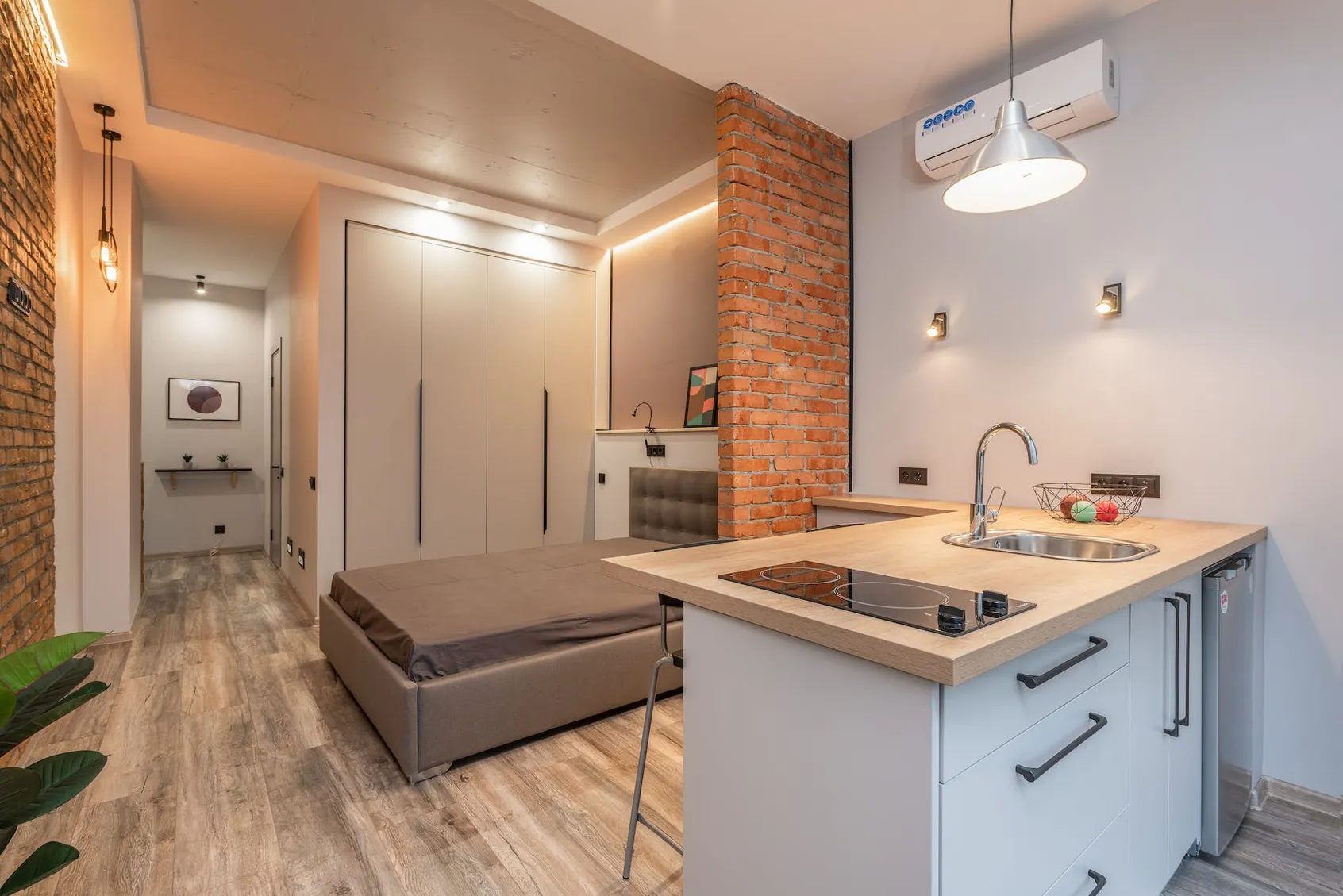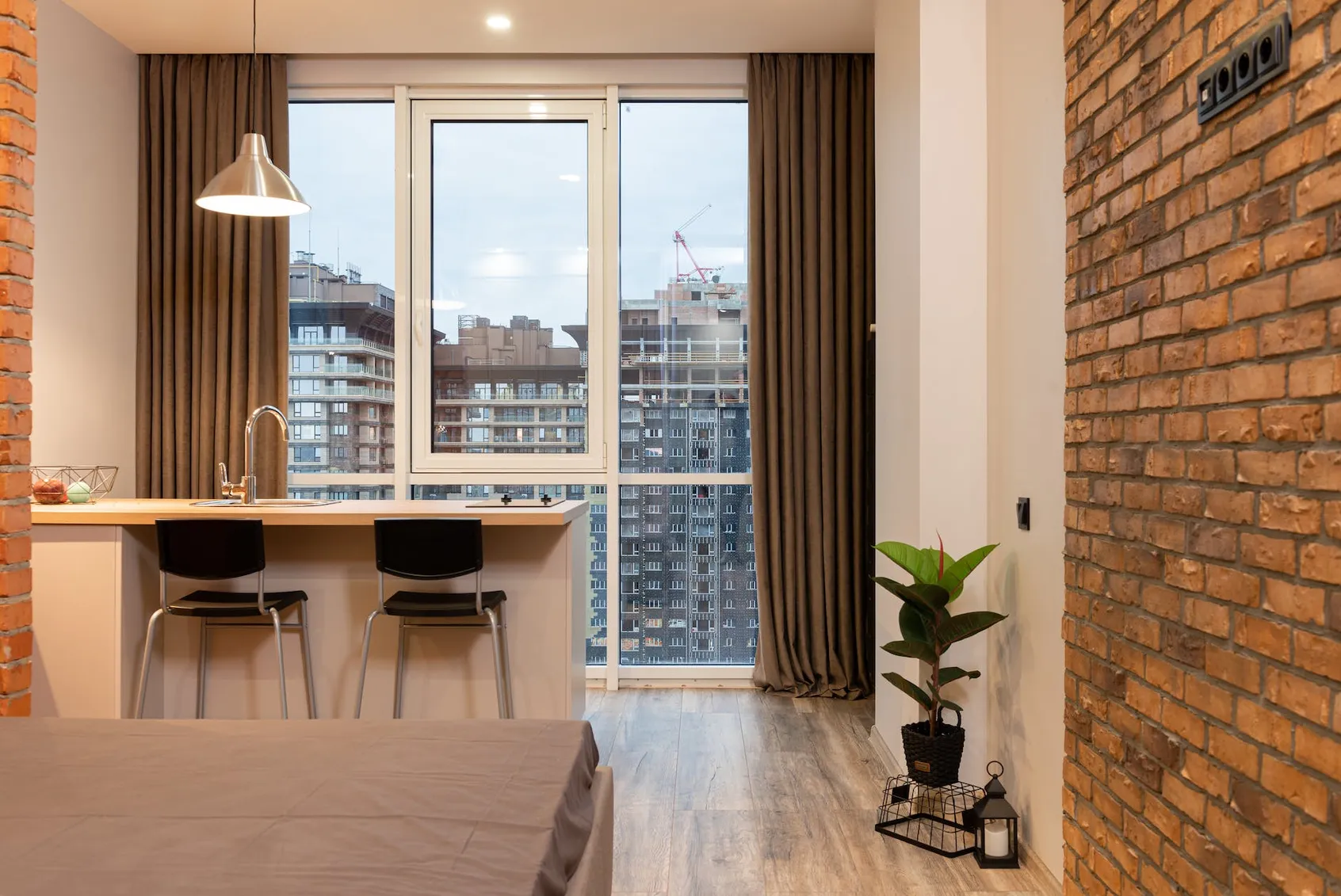When it comes to finding the perfect air conditioner for your kitchen, there are many things to consider. The size of your kitchen, the type of air conditioner you need, and your budget will all play a part in finding the perfect air conditioner for your kitchen. Knowing the benefits of each type of air conditioner and what will work best for your kitchen can help you to make the right decision.
In this article, we will discuss the various types of air conditioners available and their advantages, as well as provide tips for finding the perfect air conditioner for the kitchen.
Finding The Perfect Air Conditioner For Kitchen
Finding the perfect air conditioner for your kitchen can be a daunting task. There are many variables to consider when choosing the right one for your space. How much space do you have for the unit? What type of cooling power do you need? What type of features do you prefer? What is your budget? All these questions should be answered before shopping for an air conditioner for your kitchen.
Space is the primary factor when selecting an air conditioner for your kitchen. Knowing the size of the kitchen and the space available for the unit will help you determine the size and type of air conditioner that best fits your needs. You don’t want to buy a unit that’s too small, but you also don’t want to buy one that’s too large.
The air conditioner’s cooling power is also an important factor to consider. The cooling power of an air conditioner is measured in BTUs (British Thermal Units). The larger the kitchen, the more cooling power you’ll need. A small kitchen will require a unit with a lower BTU rating, while a larger one may require a higher BTU rating.
The features of the air conditioner are also important to consider. Some air conditioners have various features such as temperature control, timer, and remote control. These features can make it easier to manage the temperature of your kitchen and ensure that it is kept at a comfortable level.
The budget is also important to consider when selecting an air conditioner for your kitchen. Air conditioners can range in price from a few hundred to several thousand dollars. Consider your budget and select a unit that fits your price range.

Factors To Consider When Choosing An Air Conditioner For Your Kitchen
When choosing an air conditioner for your kitchen, there are several factors to consider:
- BTUs: Choose an air conditioner with the appropriate BTU (British Thermal Units) rating for the size of your kitchen. Generally, 5,000-7,000 BTUs are sufficient for a small kitchen, while larger kitchens may require 10,000-12,000 BTUs.
- Type of Air Conditioner: Decide on the air conditioner most suitable for your kitchen. A window unit may be the best option if you have a window in your kitchen, while a portable unit may be better if you don’t have a window or would like the freedom to move the unit around.
- Noise Level: Some air conditioners can be noisy, which can be especially disruptive if your kitchen is near a bedroom or living area. Look for an air conditioner with a noise rating of 60 decibels or less.
- Energy Efficiency: Choose an air conditioner with a high Energy Efficiency Ratio (EER) to help save money on energy bills. An air conditioner with an EER of 10 or higher is energy efficient.
- Brand and Warranty: Choose a reputable brand with a good warranty to ensure that your air conditioner lasts for years and that you have peace of mind.
Benefits Of Installing An Air Conditioner In Your Kitchen
There are several benefits of installing an air conditioner in your kitchen, including:
- Improved indoor air quality – cooking can produce smoke, fumes, and odors that can negatively impact the air quality in your home. An air conditioner can filter out these pollutants and provide fresh air, making your kitchen a healthier space to cook in.
- Increased comfort – cooking can also generate much heat, making your kitchen uncomfortable, especially during the summer. An air conditioner can regulate the temperature, creating a cool and comfortable environment that makes cooking much more enjoyable.
- Preserve food – a high-quality air conditioner can help to regulate humidity levels in your kitchen, which is crucial for preserving food and preventing it from spoiling.
- Reduced energy costs – installing an air conditioner in your kitchen can help compensate for the heat generated by your kitchen appliances, reducing the energy you use to cool your home.
Types Of Air Conditioners Available For Kitchens
The variety of choices can be overwhelming when it comes to finding the perfect air conditioner for your kitchen. From portable air conditioners to window units, many types of air conditioners are available to fit your needs.
- Portable air conditioners are the most affordable option and ideal for limited-space kitchens. They are also easy to install and require minimal maintenance. Portable air conditioners directly cool the kitchen and cool other house areas. On the downside, they are less energy efficient and may require frequent filter changes.
- Window units are the most common type of air conditioner for kitchens, as they are easy to install and require minimal maintenance. They are also energy efficient and provide direct cooling to the kitchen. The downside to window units is that they are not portable and can be difficult to remove for cleaning.
- Wall-mounted air conditioners are an excellent option for kitchens with limited space, as they are installed directly into the wall. They are energy efficient and provide direct cooling to the entire kitchen. The downside to wall-mounted air conditioners is that they are more expensive than other types and may require professional installation.
- Split air conditioners are the most expensive option but are designed to provide the most efficient cooling. Split air conditioners are installed directly into the wall and can be used to cool the entire kitchen. The downside to split air conditioners is that they require professional installation and can be costly to maintain.

How To Measure For The Right Size Air Conditioner For Your Kitchen?
Measuring the right size air conditioner for your kitchen is important to ensure proper cooling and energy efficiency. Here are the steps you can follow:
- Determine the square footage of your kitchen by measuring the length and width of the room and multiplying them together. For example, if your kitchen is 20 feet long and 12 feet wide, the square footage would be 240 square feet.
- Calculate the BTUs needed to cool the room. The general rule of thumb is to aim for 20 BTUs per square foot. So, for a 240-square-foot kitchen, you would need an air conditioner with a cooling power of 4,800 BTUs (240 x 20).
- Consider other factors that affect the cooling needs of your kitchen. For example, if your kitchen has high ceilings or is exposed to direct sunlight, you may need a larger air conditioner. If your kitchen is well-insulated and shaded, you can get away with a smaller unit.
- Consult the manufacturer’s specifications for a suitable air conditioner model that meets your kitchen’s cooling needs. Look for an air conditioner with the appropriate cooling capacity (in BTUs) for your kitchen’s square footage and other factors.
- Install the air conditioner according to the manufacturer’s instructions and properly seal and insulate any gaps or leaks. Regularly clean and maintain the air conditioner to ensure optimal performance and energy efficiency.
Installation And Maintenance Tips For Air Conditioners In Kitchens
When it comes to installing and maintaining air conditioners in kitchens, here are a few tips to keep in mind:
- Proper Placement: The air conditioner should be installed in a location that allows it to cool the entire kitchen evenly. Place it so it can blow cold air in all directions. Avoid placing it too close to the stovetop or oven, as this can damage the unit.
- Size Matters: Ensure the AC unit is appropriate for the kitchen. An AC that is too small will not cool the kitchen effectively, and an AC that is too large will save energy and cost more to run.
- Regular Cleaning: Since kitchens generate a lot of grease and dirt, air conditioners should be cleaned frequently to prevent a grime buildup. Cleaning the filters and coils will help maintain the AC and improve efficiency.
- Regular Servicing: A thorough service should be done at least once a year to ensure the AC unit functions efficiently. A professional can check the refrigerant levels, thermostat, and other components to ensure everything works well.
Energy Efficiency Considerations When Choosing An Air Conditioner For The Kitchen
When selecting an air conditioner for the kitchen, energy efficiency should be a primary consideration. Air conditioners can be a major source of energy consumption in a home, and choosing an energy-efficient model can help to minimize energy costs.
The most efficient models are rated with a high Seasonal Energy Efficiency Ratio (SEER) number. A SEER rating of 21 or higher is recommended for maximum efficiency. Additionally, some air conditioners have special features, such as variable-speed motors, that can further reduce energy consumption.
In addition, the size of the air conditioner is an important factor in determining energy efficiency. Oversized air conditioners will cycle on and off more frequently, resulting in higher energy costs. The size of the air conditioner should match the size of the kitchen to ensure proper cooling. The air conditioner should be capable of cooling the kitchen, but not so large that it causes the room to become excessively cold.
When selecting an air conditioner for the kitchen, it is also important to consider the noise level. Air conditioners can be quite noisy, especially on full blast. Selecting a quieter model can help to reduce noise pollution in the kitchen. Look for air conditioners with 62 decibels or less noise ratings for the quietest operation.
Finally, it is important to consider the cost of the air conditioner. Air conditioners come in various price points, and selecting a model that fits your budget is important. However, be sure to weigh the cost of the air conditioner against the potential long-term savings in energy costs.

The Pros And Cons Of Different Air Conditioner Features For Kitchens
Regarding air conditioning for kitchens, there are a few different features to consider. Here are the pros and cons of each:
- Split air conditioning: This type of air conditioner is mounted on the wall and has an indoor and outdoor unit. Split air conditioning is a great option for kitchens as it can provide efficient cooling while taking up very little space. However, installation can be more costly than other options.
- Window air conditioning: Window air conditioning units are a popular option for kitchens as they are easy to install and affordable. However, they can block natural light and take up valuable window space.
- Ducted air conditioning: This type of air conditioning is installed into the ceiling or walls of the room and provides even cooling throughout the space. Ducted air conditioning is a great option for larger kitchens, but installation can be more involved and expensive.
- Portable air conditioning: Portable air conditioning units can be moved from room to room, providing a convenient cooling solution for kitchens. However, they can be noisy and take up valuable floor space.
Ultimately, the best air conditioning option for your kitchen will depend on your specific needs and budget. Consider the space size, budget, and natural light amount when choosing the best option.
Common Questions And Answers About Air Conditioners For Kitchens
Here are some common questions and answers about air conditioners for kitchens:
- Do I need a separate air conditioner for my kitchen? – It depends on the size of your kitchen, the layout of your home, and your personal preferences. If your kitchen is open to other areas of your home and you already have a central air conditioning system, you may not need a separate unit for your kitchen. However, if your kitchen is a separate room with poor ventilation, a dedicated air conditioner may be necessary to keep it cool.
- What type of air conditioner is best for a kitchen? – A wall-mounted air conditioner is often a good choice for a kitchen, as it can be installed above the cooking area and provide cool, fresh air directly where it is needed. Window air conditioners can also work well if you have a window in your kitchen that can accommodate the unit.
- How do I choose the right size air conditioner for my kitchen? – The right size air conditioner for your kitchen will depend on several factors, including the size of the room, the number of windows and doors, the level of insulation, and the amount of heat generated by appliances and cooking. A professional HVAC technician can help you choose the right size air conditioner for your specific needs.
- What are some maintenance tips for an air conditioner in a kitchen? – To keep your air conditioner running efficiently, it’s important to keep the filter clean, check for leaks or damage, and have it serviced regularly by a professional. Keeping the unit free from grease and other airborne particles that can clog the filter and reduce its performance is also important in a kitchen.
Cost Factors To Consider When Choosing An Air Conditioner For Your Kitchen
When choosing an air conditioner for your kitchen, several cost factors must be considered. Some important factors include:
- Size of the kitchen: The size of the kitchen will play a big role in determining the size and capacity of the air conditioner needed. A larger kitchen will require a stronger and more powerful unit, which will be more expensive.
- Energy efficiency: Energy efficiency will play a significant role in the cost of operating the air conditioner. Choosing a more energy-efficient unit may be initially more expensive, but it will save costs in the long run.
- Installation costs: The air conditioner installation costs should also be considered. This includes the cost of labor, any required modifications to the kitchen, and any additional parts needed for the installation.
- Maintenance costs: Maintenance costs should also be considered when choosing an air conditioner. Maintenance costs will vary depending on the type of unit you purchase, so it’s important to research the maintenance requirements and costs associated with each option.
- Brand and model: The brand and model of the air conditioner you choose will also affect the cost. Some brands and models may be more expensive than others but may offer additional features or benefits that make the investment worthwhile.
How To Select The Right Air Conditioner For Your Kitchen?
Selecting the right air conditioner for your kitchen ensures a comfortable cooking experience. Here are a few factors to consider before making your purchase:
- Size of the kitchen: The size of your kitchen will determine the air conditioner’s size and capacity you need. Ensure that your chosen AC is powerful enough to cool the entire kitchen effectively.
- Type of air conditioner: There are different types of air conditioners available, including window ACs, split ACs, and portable ACs. Assess your kitchen layout and choose the type that fits your needs best.
- Energy efficiency: Kitchen ACs consume more energy than other rooms because cooking appliances generate heat. Look for an energy-efficient AC with a high star rating to minimize energy consumption and reduce electricity bills.
- Noise output: Most kitchen air conditioners are noisy, which can be frustrating if you spend a lot of time in the kitchen. Choose an AC with a low decibel rating to ensure minimum noise output.
- Brand and price: Quality, reliability, and brand reputation matter while buying an AC. Look out for brands known for their reliable and long-lasting appliances and compare costs across brands to select the best value for your budget.
Conclusion
In conclusion, finding the perfect air conditioner for your kitchen is important and should not be taken lightly. When deciding on an air conditioner, you should consider all factors, such as size, features, energy efficiency, noise levels, and cost. Make sure you research different models and compare them to find the one best fits your needs. You can enjoy a comfortable and cool kitchen with the right air conditioner all year.
Frequently Asked Questions:
What type of air conditioner is best for a kitchen?
The best type of air conditioner for a kitchen is a window or wall-mounted air conditioner. Window air conditioners are generally more affordable and easier to install, while wall-mounted air conditioners are more energy efficient and provide more precise temperature control.
What size air conditioner do I need for my kitchen?
It depends on the size of your kitchen and the level of air conditioning you need. If you are looking for a general recommendation, a window air conditioner with a cooling capacity of around 9,000 BTU should be able to cool an average kitchen.
How often should I service my kitchen air conditioner?
Most manufacturers recommend that you service your kitchen air conditioner at least once a year or more frequently if used frequently. This will help to keep it running at peak efficiency and extend its lifespan.
How much energy does a kitchen air conditioner use?
The amount of energy a kitchen air conditioner uses will depend on the size and type of air conditioner. Generally, a standard window air conditioner will consume 500-4,000 watts of energy when running.
